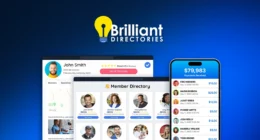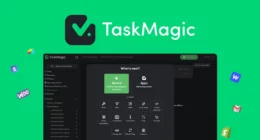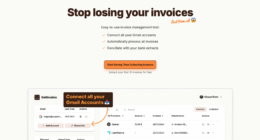Location-based marketing software enables businesses to target customers based on their geographic location using geofencing and proximity technologies. Popular platforms like CleverTap and GroundTruth offer features including real-time notifications, customizable campaigns, and advanced analytics to track customer behavior. These solutions prioritize data privacy through GDPR compliance and user permissions. With proper implementation, businesses typically see up to 50% increase in customer engagement. The expanding capabilities of these platforms continue to reshape modern marketing strategies.
Quick Overview
- Location-based marketing software uses geofencing to create virtual boundaries that trigger targeted notifications when customers enter specific areas.
- Popular platforms like CleverTap and Emarsys offer customizable campaigns with real-time engagement tracking and dynamic audience segmentation.
- Advanced analytics tools measure campaign effectiveness, track conversions, and provide instant visualization through customizable dashboards.
- Privacy compliance features ensure GDPR and CCPA adherence while maintaining transparent user control over location data collection.
- Implementation strategies combine personalized messaging, A/B testing, and real-time location data to achieve up to 50% higher engagement rates.
Understanding the Core Features of Location-Based Marketing Platforms

While modern marketing continues to evolve, location-based marketing platforms have emerged as essential tools for businesses seeking to connect with customers in real-time.
Location-based marketing technology combines several powerful features to deliver targeted notifications to consumers. At its core, geofencing creates virtual boundaries that trigger personalized messages when customers enter specific areas.
Geofencing revolutionizes customer engagement by creating invisible digital perimeters that activate targeted messages based on real-world movement patterns.
This works alongside proximity marketing through Bluetooth beacons, which engage nearby shoppers with timely offers. Advanced campaign management tools enable businesses to implement sophisticated audience segmentation, ensuring messages reach the right people at the right time.
Real-time analytics provide valuable insights into customer behavior and campaign performance, allowing marketers to adjust their strategies promptly. These integrated capabilities create a thorough system that helps businesses deliver relevant content based on customers’ physical locations and movement patterns.
Top Software Solutions and Their Unique Capabilities
Today’s market offers several sophisticated location-based marketing platforms, each bringing distinct advantages to businesses seeking to enhance their customer engagement strategies. Leading solutions combine geolocation technology with advanced analytics to deliver targeted messages while respecting privacy policies.
| Platform | Core Capability | Key Feature |
|---|---|---|
| CleverTap | Real-time Engagement | Customizable Geofencing |
| Emarsys | Omnichannel Marketing | Dynamic Segmentation |
| GroundTruth | In-store Visit Focus | CPM/CPV Pricing |
| Xtremepush | iBeacon Integration | Real-time Notifications |
| Flame Analytics | Foot Traffic Analysis | AI-Powered Insights |
These platforms excel in different aspects of location-based marketing, from GroundTruth’s precise targeting for physical visits to Flame Analytics’ sophisticated customer behavior analytics. Each solution offers unique approaches to personalized notifications and customer engagement, enabling businesses to create more effective marketing campaigns.
Analytics and Performance Metrics That Drive Results

Success in location-based marketing hinges on the careful measurement and analysis of key performance metrics. Through advanced analytics tools, businesses can track engagement rates and monitor campaign effectiveness in real-time, allowing for swift optimization of marketing strategies.
Location-based marketing software leverages powerful features like conversion tracking and attribution modeling to connect consumer behavior with business outcomes. These tools reveal how proximity-based campaigns influence in-store visits and sales, providing essential insights for decision-making.
Customizable dashboards enable marketers to visualize performance metrics instantly, while automated reporting streamlines the analysis process.
By focusing on these analytics capabilities, businesses can:
- Measure campaign impact accurately
- Optimize targeting based on real-time data
- Track return on investment
- Identify trends and patterns in consumer behavior
- Make data-driven strategy adjustments
Privacy Considerations and User Data Management
Privacy concerns stand at the forefront of location-based marketing software implementation. Modern regulations like GDPR and CCPA require businesses to maintain strict privacy considerations when handling user data.
Companies must focus on obtaining explicit opt-in permissions before collecting and processing geolocation data for marketing purposes, while also implementing robust user data management practices.
Key privacy-first approaches include:
- Anonymizing location data to protect individual identities
- Providing transparent control over location settings
- Conducting regular privacy policy audits
- Implementing thorough data security measures
Implementation Strategies for Maximum ROI

Maximizing return on investment in location-based marketing requires a strategic, data-driven implementation approach that carefully balances technology deployment with user experience.
Successful implementation strategies focus on leveraging geofencing technology to deliver personalized offers, resulting in up to 50% higher customer engagement rates.
Strategic use of geofencing for personalized customer offers drives engagement rates up by 50%, transforming location data into marketing success.
To optimize ROI, businesses should implement a multi-faceted approach:
- Conduct regular A/B testing of marketing campaigns to identify the most effective messaging
- Utilize advanced analytics to track campaign performance and make data-driven adjustments
- Deploy dynamic segmentation based on real-time location data
- Incorporate customer feedback to refine targeting strategies
These implementation methods, combined with thorough performance monitoring, typically yield a 20-30% increase in campaign effectiveness while building stronger customer relationships through personalized interactions.
Frequently Asked Questions
What Is Location-Based Marketing?
Location-based marketing is a strategic advertising approach that delivers targeted content to consumers based on their physical location.
It uses geolocation technology, including GPS, mobile devices, and IP addresses, to identify where potential customers are.
Businesses can then send personalized promotions, offers, and messages when people are near their establishments.
This method combines proximity tracking with targeted messaging to enhance customer engagement and increase sales through timely, relevant communications.
What Is an Example of Location-Based Services in Marketing?
A common example of location-based marketing is when Starbucks sends special drink offers to customers’ phones as they approach their stores.
Through geofencing technology, the app detects when a customer is nearby and delivers personalized promotions.
Similarly, Target uses beacon technology to guide shoppers to specific store sections where items from their shopping list are located, while simultaneously sending relevant coupons to enhance the shopping experience.
How to Market to a Specific Location?
Imagine businesses stalking customers like enthusiastic puppies – but there’s actually a smarter way to reach local audiences.
To market to a specific location:
- Create geo-targeted social media ads focusing on zip codes
- Optimize Google Business Profile for local searches
- Partner with area influencers and businesses
- Use location-specific keywords in content
- Participate in community events
- Launch direct mail campaigns to targeted neighborhoods
- Customize promotions based on local preferences and trends
This targeted approach guarantees marketing dollars reach the right local audience effectively.
What Is a Location-Based Platform?
A location-based platform is a digital system that connects businesses with nearby customers using GPS and mobile technology.
It tracks users’ physical locations to deliver relevant marketing messages, promotions, and information when they’re close to specific places.
Think of it as a smart messenger that knows where people are and sends them useful content based on their location – like a coupon when they’re near a store or a restaurant recommendation in their area.
Conclusion
Location-based marketing software, like a skilled navigator guiding ships to harbor, steers businesses toward their ideal customers with precision and purpose. By combining robust analytics, user-focused privacy measures, and strategic implementation, companies can effectively connect with audiences at the right place and time. When properly deployed, these platforms transform raw location data into meaningful engagement opportunities, delivering measurable results that boost both customer satisfaction and bottom-line growth.








